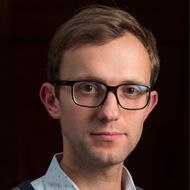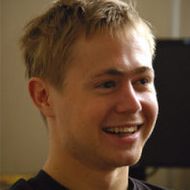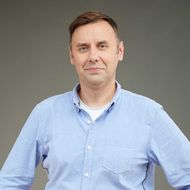Facts about Students in Science
Research plays a growing role in the educational process of the country’s leading universities. The HSE Statement of Values, for example, underscores its importance, stating: ‘Our lectures and textbooks reflect cutting-edge academic research; our academic articles, student papers, models and experiments seek to expand the horizons of contemporary academic inquiry.’ In honor of Students’ Day, we present a selection of facts about the connection between study and science in Russian universities, and specifically at HSE. (Sources: Monitoring of Education Markets and Organizations (MEMO), Monitoring Survey of Innovative Behavior of the Population (MSIBP), additional materials of the Institute for Statistical Studies and Economics of Knowledge (ISSEK), as well as results of a survey by the HSE Centre for Institutional Research (CIR).
How do Students Participate in Scientific Work?
The most common way that undergraduate and specialized programme students participated in scientific work (24% in 2017) was by speaking at conferences. Students also attended scientific seminars and other events (17%), submitted their work to science competitions (10%), published their work (10%), served as volunteers (10%) or as paid assistants (only 1%) in scientific projects, and were employed by university science departments (2%).
Master’s students were at least 150% more likely than undergraduates and students of specialized programmes to participate in each of these forms of scientific activity. Speaking at scientific conferences was also the most common form of participation (43%) among Master’s students. They were almost twice as likely (30%) to publish the results of their research, 26% attended scientific seminars and other scientific events, and 16% took part in competitions of student scientific work. However, they were comparatively much less likely to demonstrate their abilities with laboratory projects, as volunteers at scientific centres, or by doing grant-funded research.
There is a positive relationship between participation in research and academic performance. In 2017, for example, 74% of undergraduate and specialized programme students with 4.0 GPAs were involved in scientific research, while the figure stood at 53% for those with both ‘good’ and ‘excellent’ marks, and 35% for those with primarily ‘good’ grades.
How do Graduates Establish Themselves in the Academic Environment?
Students seeking academic or scientific careers are not very optimistic about working in their area of expertise.. According to MEMO, most such students in 2017 (56%) planned to seek work in the commercial sector, 13% in the public sector, 9% hoped to become government officials, and another 9% hoped to work in science. According to data for 2017, however, only a little more than 1% of all college graduates actually entered careers in the sciences, and even fewer – just 0.7% — went into research.
Views within the family might play a role. According to an MSIBP survey, only 32% of Russians would consider an academic career a good choice for their child, as compared to 80% of parents in the U.S. and 77% in Israel.
‘Involving and anchoring youth in science is a priority of the Strategy for the Scientific and Technological Development of the Russian Federation, but the task is not as simple as it seems,’ said Konstantin Fursov, Deputy Director of the HSE Centre for Statistics and Monitoring of S&T and Innovation, and member of the Coordination Council for Youth Affairs in the Sphere of Science and Education under the Presidential Council for Science and Education. ‘Along with developing tools for supporting young researchers, one of the pressing problems remains the formation of a quality environment for professional growth. This is not only a political issue,’ he said, ‘but also a task for scientific organisations and universities to develop specific practices aimed at integrating education and science, improving graduate training programmes, supporting the initiatives of young researchers, etc.’
Student Science at HSE
Many HSE students are actively involved in scientific research. According to the annual CIR student survey, in 2017 approximately 10% of students volunteered in research labs and groups, 5% oversaw research, and only 1%-2% were involved in research projects in student organisations. There were also highly motivated students who put more into their research papers and dissertations than was required for a good grade (some of whom won the Open HSE Student Research Paper Competition), and who plan to continue their research as participants in expeditions.
For a student in the sciences, the highest achievement is having his or her research published in a full-fledged, peer-reviewed scientific journal. Approximately 20% of Russian undergraduates have published by the time they graduate, and approximately 5% see their work published in Russian or foreign scientific journals. Among graduate students, the corresponding figures stand at 50% and 27%.
Careers in science remain only moderately popular among HSE students, especially undergraduates. According to the annual CIR survey, approximately 10% of undergraduates and 25% of graduate students considered pursuing careers in educational and scientific institutions.
The academic development of HSE students begins with an introduction to science, an understanding of the scientific method, and a passion for discoveries or theories. This is followed by an introduction to the practice of scientific research in academic and real-world settings. The Office for Internal Monitoring and Student Academic Development (OIMSAD) helps interested students find the labs and research centres and institutes that match their interests. ‘On one hand, this is important for meeting the staffing needs of HSE and Russian science generally. On the other, research experience provides a competitive advantage in building a career in both the academic sphere and, for example, R&D,’ said OIMSAD Head Ivan Gruzdev.
The Centre for Student Academic Development (CSAD) was created in late 2018 to help HSE students commit to pursuing academic careers. According to CSAD Director Andrey Kozhanov, ‘We want to help develop the emergence of two related identities – student-led research and university-led research. In a world where pragmatic considerations matter, our aim is to show that prospects for an academic career are among the best.’
In the near future, HSE will create a platform for uniting the ‘student scientific avant-garde’ in a format of open communication that offers multiple tools for developing student research projects and academic skills, and for popularizing science, scientific knowledge, and careers in academics and the sciences.
Descriptions of all research conducted by HSE are found in the Research section of the university’s portal. Also, check out the Science for Students section of the site’s Student Research Guide.
SOURCES QUOTED FOR THIS ARTICLE:
Deputy Director of the HSE Centre for Statistics and Monitoring of S&T and Innovation and member of the Coordination Council for Youth Affairs in the Sphere of Science and Education under the Presidential Council for Science and Education
Director of the Office for Internal Monitoring and Student Academic Development
Director of the HSE Centre for Student Academic Development
Third-year HSE Faculty of Business and Management students Valeria Vlasova and Venera Gilmanova helped prepare material for this report as part of the Innovative Storytelling about Innovation, New Technologies, and Scientific Development project launched through the Project Fair. The photographs, provided by the university’s Public Affairs Office, were taken from the most recent HSE Day event. Finally, the 25 professions of the future for which HSE prepares its students includes the Governance of Science, Technology and Innovation Master’s Programme of the ISSEK, with all instruction in English.
See also:
Have you spotted a typo?
Highlight it, click Ctrl+Enter and send us a message. Thank you for your help!
To be used only for spelling or punctuation mistakes.


